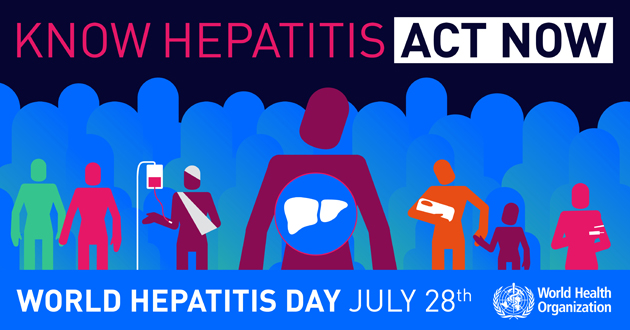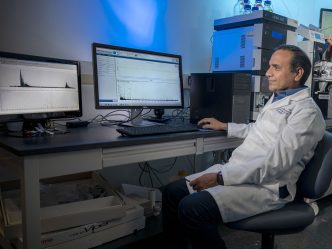Augusta University has more than 80 experts on hand to help reporters cover a variety of topics. Here are some trending stories to consider this week:
Are you among the “missing millions” on World Hepatitis Day?
On July 28, countries across the globe will acknowledge World Hepatitis Day in an effort to locate the “missing millions” and one day find a cure for this potentially debilitating and sometimes deadly disease.
Worldwide, 300 million people are living with viral hepatitis unaware. Without finding the undiagnosed and linking them to care, millions will continue to suffer, and lives will be lost. On World Hepatitis Day, we call on people from across the world to take action and raise awareness to find the “missing millions.” — WorldHepatitisDay.org
According to the Centers for Disease Control and Prevention, 25 states in the U.S. have seen Hepatitis A outbreaks since 2017, with 22,028 confirmed cases and 216 deaths. Twenty-three of those outbreaks are still considered ongoing, including in Georgia, which has seen two deaths and 487 cases.
- Are you a reporter covering health, infectious diseases or outbreaks?
- Do you need to know more about the signs, symptoms and causes of hepatitis?
- How is it spread, who is most affected and what are the treatments?
Dr. Jose Vazquez is Chief of the Division of Infectious Diseases at the Medical College of Georgia at Augusta University and AU Medical Center. He studies and treats infectious diseases, including hepatitis, and is available to speak on this topic.
Modernizing rural health and what it could mean for America
For Americans living outside of cities and in rural and sometimes remote areas of the country, the concept of readily accessible health care just isn’t a reality.
However, the idea of expanding broadband internet into rural communities to improve access is one that shares support from all sides of the political spectrum. Just last week, an expert from Augusta University was called up to speak before lawmakers in Congress on the need for this technology and who it could best serve.
“One of the biggest needs is tele-psychiatry and tele-mental health,” said Dr. David Hess of the Medical College of Georgia. — Spectrum News 1, July 11
- How many rural Americans are without access to a doctor or hospital in the country?
- How much money could be saved by expanding online health care?
- Online is a viable solution, but are there drawbacks or concerns for patients?
- How could expanding broadband and digital health care support issues like mental and maternal health across rural America?
Dr. David Hess is dean of the Medical College of Georgia and executive vice president for Medical Affairs and Integration at Augusta University. He also helped develop the REACH telestroke network in rural Georgia that now includes about 30 hospitals. Dr. Hess is available to speak with media regarding this topic.
Contact our experts directly by clicking on the names above, or call 706-522-3023 to schedule an interview on any of these topics. Also, check out the Augusta University Expert Center to view a complete list of our experts.
View photos of this week’s experts and a video about World Hepatitis Day.
 Augusta University
Augusta University





